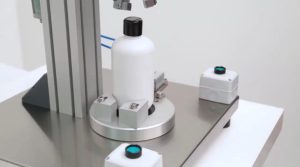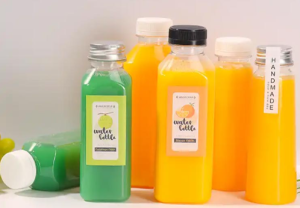News Blog
Keep up to date with the latest news, insights and features from the Adelphi Group of Companies
Tabletop Capping Automation: Your Challenges ANSWERED!
May 16, 2024
ASK THE EXPERT:
Whether you’re a seasoned professional seeking optimization, or a newcomer navigating the complexities, take advantage of our 75+ years in the industry to find out more about the challenges and opportunities of capping automation – tabletop style…
Scenario 1: An artisan-scale vineyard has been approached by a national supermarket chain wanting to stock their wines. The company wants advice about the benefits of an automated capping machine, versus employing and training additional team members, to fulfil this contract and boost their brand.
Adelphi Recommends: Automated capping systems significantly enhance your business’ output potential, by reducing both the time and labour required for the capping process. This translates to higher throughput rates and decreased production costs, as the need for manual intervention decreases. Utilising an automated capper not only upskills the existing team, but also reduces the risk of repetitive strain injury for team members who may be pushing themselves too hard to fulfil larger order quantities.
Wine bottles typically utilise ROPP or Stelvin-type caps. The ROPP Capper is a tabletop solution specifically designed for these cap types, and fits a wide range of cap sizes: Min/Max cap diameter: 15 – 50mm. Find out more or request a quotation >>>

Scenario 2: The new product development team of a skincare manufacturing plant creates test-batches of new scented creams, to assess customer reactions through sales at a local salon, before selecting some for full-scale production. Their development lab is rather space-restricted, and the team struggle to tighten the caps consistently, for all of the different formulations. This has led to leakage, which spoils the product labels, and therefore some jars of cream are being wasted in every batch.
Adelphi Recommends: Wasted product equates to wasted revenue potential for the business, which must be minimised as far as possible. Benchtop or tabletop capping machines such as the Pneumatic Bottle Capper (for twist-off bottle and jar caps) give significantly greater torque consistency than can be achieved manually, therefore preventing under or over-tightening of caps, which are common causes of leaks.
This particular machine can be adapted to a wide range of cap sizes by changing only the cap chuck, meaning that there’s hardly any downtime in between capping all the exciting new scents!
Additionally, cappers of this type fit easily onto existing work surfaces, so team members don’t have to dance around each other, and orders can go out the door more quickly and efficiently.

Scenario 3: A British manufacturer of juices and smoothies is applying for an internationally recognised quality standards certification, to increase purchasing confidence from European customers, and therefore grow revenue in this market. Their – currently manual – capping process has been flagged as a cause of concern due to poor repeatability of tightness between batches, which could compromise the product’s shelf life during transit.
Adelphi Recommends: Introducing a capping machine enables the capping procedure to be standardised between team members, who otherwise may work in different ways and achieve different standards of cap tightness. Greater force is able to be applied using automation equipment -the Benchtop Screw Capper in particular is ideal for juice capping – than from the average hand-tightening process, meaning that the chances of airtight capping are greatly increased.

Do any of these considerations resonate, or do you have any other questions about capping automation machinery? You are warmly invited to contact the team at Adelphi Manufacturing: +44(0)1444 472300, info@adelphi.uk.com
